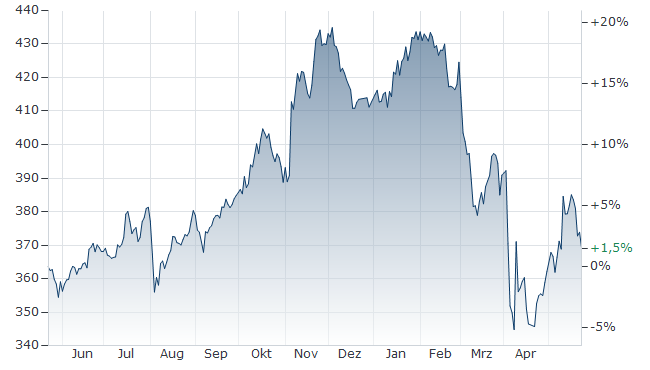G-7 Nations Debate Lowering Tariffs On Chinese Imports

Table of Contents
Economic Arguments for Tariff Reduction
Lowering tariffs on Chinese imports could unlock substantial economic benefits for G7 nations.
Boosting Consumer Spending
Reduced tariffs translate directly into lower prices for consumers. Imagine cheaper electronics, clothing, and household goods – all sourced from China. This increased purchasing power could significantly stimulate economic growth within G7 countries.
- Electronics: Smartphones, laptops, and other consumer electronics could become considerably more affordable.
- Clothing and textiles: Lower tariffs could lead to significant price reductions on clothing and apparel, benefiting consumers across all income levels.
- Household goods: Everyday items ranging from kitchenware to furniture could see price drops, boosting household budgets.
This increased consumer spending could have a ripple effect, boosting economic activity and job creation across various sectors. However, concerns remain about the potential impact on domestic industries producing similar goods. A delicate balancing act is needed to ensure that benefits are felt across the board without undermining local production.
Increased Trade and Economic Interdependence
Lowering tariffs fosters greater trade and interdependence between the G7 and China. Increased trade volumes could lead to mutual economic benefits.
- Current Trade Volumes: Existing trade data shows a significant flow of goods between the G7 and China.
- Potential Increase: Tariff reductions could unlock even greater trade potential, enriching both sides.
- Global Economic Growth: Increased trade contributes positively to global economic growth, fostering a more interconnected and prosperous world.
While increased trade offers advantages, it’s crucial to acknowledge the risks of over-reliance on China for specific goods or resources. Diversifying supply chains remains vital to mitigate potential vulnerabilities.
Economic Arguments Against Tariff Reduction
While there are potential upsides to reducing tariffs, significant economic arguments stand against it.
Protecting Domestic Industries
Lowering tariffs exposes domestic industries in G7 nations to increased competition from cheaper Chinese imports.
- Manufacturing: Industries like manufacturing could face job losses due to competition from lower-priced Chinese goods.
- Agriculture: Farmers may struggle to compete with subsidized Chinese agricultural products.
- National Interests: Safeguarding national industries and jobs is a paramount concern for many G7 governments.
Mitigation strategies are essential. This includes targeted support for domestic industries, such as subsidies, tax breaks, and retraining programs for displaced workers. A well-structured approach can help cushion the blow and facilitate a smoother transition.
Concerns about Chinese Trade Practices
Concerns about unfair trade practices employed by China, including intellectual property theft and government subsidies, fuel opposition to tariff reductions.
- Intellectual Property Theft: China's track record on protecting intellectual property rights remains a major concern for G7 businesses.
- Subsidies: Government subsidies to Chinese industries create an uneven playing field, giving them an unfair advantage in global markets.
- Fair Competition: Ensuring fair competition requires addressing these unfair trade practices through negotiations and strengthened international trade rules.
Solutions include robust negotiations with China to address these issues and the reinforcement of international trade rules and regulations. Only with a commitment to fair competition can the benefits of trade be truly shared.
Geopolitical Implications of the Debate
The debate over tariffs carries significant geopolitical implications, particularly regarding the US-China relationship.
Impact on US-China Relations
The decision on tariff reductions will significantly influence the already strained relationship between the US and China.
- Easing Tensions: A reduction in tariffs could be seen as a gesture of goodwill, potentially easing trade tensions.
- Further Escalation: Conversely, maintaining or increasing tariffs could further escalate the trade war and deepen geopolitical divisions.
- G7's Role: The G7’s collective stance on this issue will significantly impact the global trade landscape and shape the future of the US-China relationship.
The G7's approach to China will set a precedent for other nations and shape global trade norms.
The G7's Role in Shaping Global Trade Policy
The G7 plays a crucial role in shaping global trade norms and policies.
- Historical Influence: The G7 has a long history of influencing global trade policy.
- Current Stance: Their current stance on China will set a precedent for other nations.
- Future Actions: Their future actions will impact the future trajectory of international trade.
The G7’s actions here will resonate far beyond its member states.
Conclusion: The Future of G-7 Trade Policy Towards China
The debate surrounding "G-7 Nations Debate Lowering Tariffs on Chinese Imports" is complex, balancing the potential economic benefits of cheaper goods with concerns about domestic industries and fair trade practices. The geopolitical implications are equally significant, shaping the relationship between the G7 and China, and influencing global trade norms. Careful consideration is needed to navigate this complex issue and reach a decision that promotes sustainable and equitable growth for all involved. Stay informed about this ongoing debate, research further, and contact your representatives to voice your opinions on this crucial matter impacting the global economy. The future of trade between the G7 and China hinges on these discussions, and your voice matters.

Featured Posts
-
 A Couples Fight Joe Jonass Classy Response
May 24, 2025
A Couples Fight Joe Jonass Classy Response
May 24, 2025 -
 Nyt Mini Crossword Hints And Answers For March 12 2025
May 24, 2025
Nyt Mini Crossword Hints And Answers For March 12 2025
May 24, 2025 -
 Frankfurt Stock Market Update Dax Climbs Nears Record
May 24, 2025
Frankfurt Stock Market Update Dax Climbs Nears Record
May 24, 2025 -
 Amundi Dow Jones Industrial Average Ucits Etf Nav Calculation And Implications
May 24, 2025
Amundi Dow Jones Industrial Average Ucits Etf Nav Calculation And Implications
May 24, 2025 -
 Amundi Djia Ucits Etf Nav Explained
May 24, 2025
Amundi Djia Ucits Etf Nav Explained
May 24, 2025
